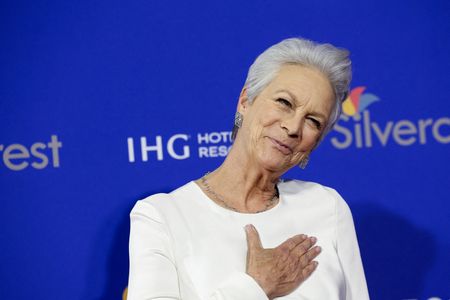By Jonathan Allen
ST. PAUL, Minn. (Reuters) -Two of the three former Minneapolis police officers on trial for violating George Floyd’s civil rights testified on Wednesday that they deferred to their ex-colleague Derek Chauvin’s years of seniority as he knelt on the handcuffed Black man’s neck for more than nine minutes.
Taking the stand in his own defense, J. Alexander Kueng, told the jury that he was a rookie cop still on probation during the deadly arrest of Floyd, 46, on May 25, 2020, fearful of discipline or dismissal by his seniors.
He testified that the Minneapolis police academy had drilled into him a deeply hierarchical culture where the authority of senior officers such as Chauvin, who had been his field training officer earlier that year, was never to be questioned.
Earlier in the day, his co-defendant Tou Thao, 36, repeatedly told the jury in U.S. District Court in St. Paul he assumed Floyd must be fine and not in need of medical intervention because Chauvin was an experienced police officer.
Chauvin, who is white, was sentenced to 22-1/2 years in prison for murdering Floyd in a separate state trial last year, and later pleaded guilty to the federal charges of violating Floyd’s rights. The killing was captured on a widely seen cellphone video that also shows Thao stood nearby keeping increasingly alarmed bystanders up on the sidewalk while Kueng and their co-defendant Thomas Lane, 38, pin down Floyd’s legs.
Prosecutors have said the defendants ignored both their own training and basic common sense, violating Floyd’s right to not face excessive force or be denied medical aid in police custody.
Kueng, a 28-year-old Minneapolis native who described himself as mixed race, testified that he had received minimal police training on either the duty to intervene or the dangers of not moving a handcuffed prone person onto their side to make it easier for them to breathe.
He said he had been trained that an officer should intervene with a colleague when “you see something obviously wrong,” saying the examples he had been given were an “officer kicking, punching or hitting a handcuffed subject, typically in the face.”
His lawyer Thomas Plunkett read aloud a section of the Minneapolis police training manual on following orders that “instant and unquestioned obedience is demanded.”
“You don’t think about it, you don’t second guess it, you just follow it,” Kueng said.
Kueng and Lane, another rookie only a few days out of field training, were the first to respond to the Cup Foods store where Floyd had been accused of passing a fake $20 to buy cigarettes.
Chauvin arrived with Thao as the two rookies struggled to get the handcuffed Floyd to stay in the back of their squad car.
“I’ve never been involved in a struggle like I had with Mr. Floyd,” Kueng said, adding that seeing the arrival of Chauvin, his former trainer, made him think he was doing something wrong.
Chauvin was widely respected in the force, Kueng said.
“He was very quiet, but he had a high level of experience, he was by the book,” Kueng said. “He was upright, fair but tough.”
Kueng can later be seen on a body-worn camera video telling Chauvin he cannot find Floyd’s pulse after Floyd has stopped moving, but he testified on Wednesday he mistakenly believed Floyd was still breathing when the ambulance arrived and so did not think there was a medical emergency.
His co-defendant Thao rejected the repeated suggestion by a prosecutor that he should have listened to shouted demands from bystanders for officers to get off an unconscious Floyd and to check his pulse.
“I don’t take orders from them,” he said, saying instead he deferred to Chauvin’s authority. “I think I would trust a 19-year veteran to figure it out.”
(Reporting by Jonathan Allen; Editing by Howard Goller)











